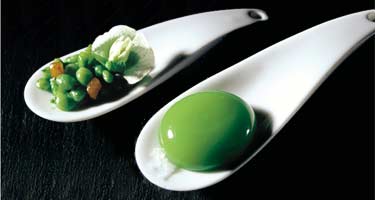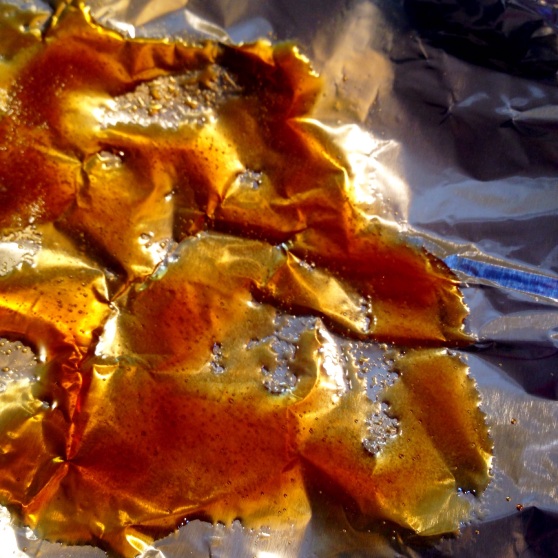Note: I started this post almost two weeks ago on the actual first day of class, October 8. See the update below for my delay in posting (i.e. class is HARD!!!).
First day of school!!!!
I mentioned last week that I registered to take an online course from Harvard on Science and Cooking. Today the course opened and I’ve dived in headfirst watching the introductory videos, reading the required text, making my own introductory video, and checking out the labs and homework assignments. It’s not too late for you to join the class if you haven’t already done so. It’s free and whether or not you choose to do any of the homework and labs is entirely up to you — you can choose to audit the course, or if you choose the certificate option and don’t end up doing all the required material, really what do you have to lose?
The first homework and lab assignments aren’t due until November 19, so you have plenty of time to catch up. Here’s a description of the course from the syllabus:
Science and Cooking:
From Haute Cuisine to Soft Matter Science
This course will discuss concepts from the physical sciences that underpin both everyday cooking and haute cuisine. Each week we will visit a world-famous chef, who will show us the secrets of some of their remarkable creations. We will use these as inspiration to delve into the basic fundamental science behind food and cooking. The chefs include Joan Roca (El Celler de Can Roca), Bill Yosses (White House Pastry Chef), Enric Rovira (Master Chocolatier), Carme Ruscalleda (Sant Pau), José Andrés (ThinkFoodGroup, Minibar, Jaleo), Wylie Dufresne (wd-50), Joanne Chang (Flour Bakery, Myers and Chang), David Chang (Momofuku), Carles Tejedor (Restaurante Via Veneto), Dan Barber (Blue Hill) and Ferran Adrià (El Bulli). There will also be demos and lectures by other leaders in the field, including America’s Test Kitchen, authors Harold McGee (On Food and Cooking, Keys to Good Cooking) and Nathan Myhrvold (Modernist Cuisine), and food scientist Dave Arnold (Cooking Issues).
At the end of the course, students will be able to explain how a range of cooking techniques and recipes work, in terms of the physical and chemical transformations of food.
Regardless of whether you’re a science or cooking whiz, I think everyone can learn something from this class, and it will be great fun to be a part of a huge community of online learners, most of whom I assume have a love of food. I’m excited that I have a friends both locally and in the blog world that will be taking this class alongside me and I hope that we’ll have time to chat about what we’re learning and our successes (and possible failures) in the weekly labs.
If the technology of taking an online class scares you, there is an introductory class you can take that helps you learn your way around the edX website and courses. It’s a self-paced class (and it’s not graded), and I found it to be extremely helpful in learning what to expect from this class and help me navigate my way through the various materials online.
When else will you have an opportunity to learn from some of the greatest chefs in the world? José Andrés, Ferran Adriá, David Chang, Wylie Dufresne, just to name a few. These are chefs whose restaurants I will probably never be able to get into, but I have been presented with this amazing opportunity to be taught by them in my own home. Here’s a short video of José Andrés introducing the class — seriously, how adorable is he?
I haven’t decided yet what I want my final project to be, but I can’t wait to get started!
And here’s a picture of my first lab project — I calibrated my oven by melting sugar, folks:
Update: I started this post last week when the first class began. And then I got completely stumped in the homework section. The lab was fine — I aced that. But the level of math and science needed to complete the homework was way off what I’m used to, not to mention how many years it’s been since I took math and science in high school. I was really good at math, but it’s been ages since I’ve done formulas like these. Anyway, after watching the lectures several times, taking copious notes, and reading all the discussion below, I was finally able to finish the homework equations and got an A for the week!
Week 2 went much better – I haven’t started the lab yet, but I printed out the homework questions, took a ton of notes during the lectures again, and mostly breezed my way through the homework. I don’t know if the problems were easier this week, or if I was just better prepared, but I’m feeling a lot better about this class now. I was really discouraged the first week because I didn’t even know where to start with some of the problems. My one complaint is that there are inconsistencies between the lecture and homework, and also appear to be some errors in the homework as well, but reading the discussion helps to avoid those mistakes.

